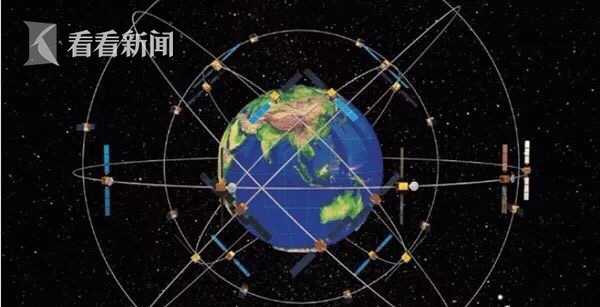
The five functional modules of the operating system are processor management, memory management, device management, file management and operation management. Processor management The most basic function of processor management is to process interrupt events. After configuring the operating system, various events can be processed.
The functions of the computer operating system include: processor management, memory management, device management, file management, job management and other functional modules. Processor management. The most basic function of processor management is to handle interrupt events. The processor can only detect interrupt events and generate interrupts and cannot process them.
Storage management is divided into several functions: storage allocation, storage sharing, storage protection, and storage expansion.Equipment management has the following functions: equipment allocation, equipment transmission control, and equipment independence. File management: file storage space management, directory management, file operation management, file protection.
The operating system should usually include the following five functional modules: (1) Processor management. When multiple programs are running at the same time, solve the problem of processor (cpu) time allocation. ( 2) Operation management. The program to complete an independent task and its required data constitute a task.
The function of the operating system is mainly reflected in the management of computer resources - microprocessors, memory, external devices, files and tasks. The operating system sets this management function into the corresponding program management module, and each management module is responsible for a certain function.That is, the five functions of the operating system.
The operating system has five functions: processor management: mainly controls and manages the work of the CPU. Storage management: mainly carry out memory allocation and management device management: mainly manage basic input and output device file management: responsible for the organization, storage, operation and protection of computer files, etc.

There are the following types of management systems: the management system of the finished product set. This kind of system is a stereotyped management system, which makes a small number of functional adjustments to the software through the parameter settings of the software.
Transaction Processing System (TPS): Operators and supervisors are used to input transactions, events, sort, list, merge updates, output detailed reports, lists and summaries, etc. Management Information System (MIS): Middle managers are used to input general transaction data and simple models to process routine reports.
Adgecal management system Academic management system is one of the most core management systems of the school, which is responsible for arranging and managing the school's teaching activities. It includes curriculum setting, teaching plan, teacher arrangement, examination management and other contents.
VMware vSphere: It is a virtualization management platform that can be used to manage virtual machines, storage and networks, etc. Nagios: It is an open source network monitoring system that can be used to monitor network devices, servers and applications, etc.
Financial subsystem: providing the function of financial management information; Decision support subsystem: make the logistics information system reach a higher level.
ERP management system brand Youyou, Jindie International Software, Wave Software, Dingjie Software, Zhenghang Software. Use friends.
1. System management refers to the information technology system that manages enterprises, and file management is one of the five major functions of the operating system.First, network management refers to the centralized management of resources on the network by network administrators through network management programs.
2. System Management regards organizational components as interrelated and interdependent systems, so it advocates applying the system concept to the management concept.
3. System management refers to the process of maintaining, managing and monitoring computer systems. As an important part of enterprise informatization construction, the importance of computer system management cannot be ignored.
LR stock price Philippines-APP, download it now, new users will receive a novice gift pack.
The five functional modules of the operating system are processor management, memory management, device management, file management and operation management. Processor management The most basic function of processor management is to process interrupt events. After configuring the operating system, various events can be processed.
The functions of the computer operating system include: processor management, memory management, device management, file management, job management and other functional modules. Processor management. The most basic function of processor management is to handle interrupt events. The processor can only detect interrupt events and generate interrupts and cannot process them.
Storage management is divided into several functions: storage allocation, storage sharing, storage protection, and storage expansion.Equipment management has the following functions: equipment allocation, equipment transmission control, and equipment independence. File management: file storage space management, directory management, file operation management, file protection.
The operating system should usually include the following five functional modules: (1) Processor management. When multiple programs are running at the same time, solve the problem of processor (cpu) time allocation. ( 2) Operation management. The program to complete an independent task and its required data constitute a task.
The function of the operating system is mainly reflected in the management of computer resources - microprocessors, memory, external devices, files and tasks. The operating system sets this management function into the corresponding program management module, and each management module is responsible for a certain function.That is, the five functions of the operating system.
The operating system has five functions: processor management: mainly controls and manages the work of the CPU. Storage management: mainly carry out memory allocation and management device management: mainly manage basic input and output device file management: responsible for the organization, storage, operation and protection of computer files, etc.

There are the following types of management systems: the management system of the finished product set. This kind of system is a stereotyped management system, which makes a small number of functional adjustments to the software through the parameter settings of the software.
Transaction Processing System (TPS): Operators and supervisors are used to input transactions, events, sort, list, merge updates, output detailed reports, lists and summaries, etc. Management Information System (MIS): Middle managers are used to input general transaction data and simple models to process routine reports.
Adgecal management system Academic management system is one of the most core management systems of the school, which is responsible for arranging and managing the school's teaching activities. It includes curriculum setting, teaching plan, teacher arrangement, examination management and other contents.
VMware vSphere: It is a virtualization management platform that can be used to manage virtual machines, storage and networks, etc. Nagios: It is an open source network monitoring system that can be used to monitor network devices, servers and applications, etc.
Financial subsystem: providing the function of financial management information; Decision support subsystem: make the logistics information system reach a higher level.
ERP management system brand Youyou, Jindie International Software, Wave Software, Dingjie Software, Zhenghang Software. Use friends.
1. System management refers to the information technology system that manages enterprises, and file management is one of the five major functions of the operating system.First, network management refers to the centralized management of resources on the network by network administrators through network management programs.
2. System Management regards organizational components as interrelated and interdependent systems, so it advocates applying the system concept to the management concept.
3. System management refers to the process of maintaining, managing and monitoring computer systems. As an important part of enterprise informatization construction, the importance of computer system management cannot be ignored.
UEFA Champions League live streaming app
author: 2025-01-10 12:19App to watch Champions League live free
author: 2025-01-10 13:32Free sports events uefa champions league app android
author: 2025-01-10 12:32 Hearthstone arena class win rates reddit
Hearthstone arena class win rates reddit
494.84MB
Check UEFA European championship
UEFA European championship
835.69MB
Check Europa League app
Europa League app
336.65MB
Check DigiPlus fair value
DigiPlus fair value
286.78MB
Check App to watch Champions League live free
App to watch Champions League live free
193.85MB
Check Casino Plus free 100
Casino Plus free 100
797.19MB
Check DigiPlus stock
DigiPlus stock
294.49MB
Check Casino Plus app
Casino Plus app
873.19MB
Check App to watch Champions League live free
App to watch Champions League live free
396.21MB
Check UEFA live free
UEFA live free
488.17MB
Check Bingo Plus stock
Bingo Plus stock
113.78MB
Check Hearthstone deck
Hearthstone deck
164.83MB
Check Hearthstone arena
Hearthstone arena
346.94MB
Check DigiPlus Philippine
DigiPlus Philippine
621.99MB
Check Arena Plus login
Arena Plus login
118.41MB
Check UEFA EURO
UEFA EURO
423.73MB
Check Casino Plus free 100
Casino Plus free 100
884.96MB
Check UEFA live free
UEFA live free
411.12MB
Check UEFA Champions League
UEFA Champions League
815.85MB
Check casino plus free 100
casino plus free 100
441.72MB
Check Hearthstone arena class win rates reddit
Hearthstone arena class win rates reddit
226.96MB
Check UEFA Champions League live streaming free
UEFA Champions League live streaming free
696.73MB
Check Hearthstone arena deck Builder
Hearthstone arena deck Builder
352.68MB
Check DigiPlus Philippine
DigiPlus Philippine
236.67MB
Check DigiPlus Philippine
DigiPlus Philippine
749.22MB
Check DigiPlus stock
DigiPlus stock
738.44MB
Check Hearthstone Wild Decks
Hearthstone Wild Decks
332.37MB
Check App to watch Champions League live free
App to watch Champions League live free
313.81MB
Check casino plus free 100
casino plus free 100
216.41MB
Check UEFA Champions League standings
UEFA Champions League standings
373.13MB
Check bingo plus update today Philippines
bingo plus update today Philippines
563.64MB
Check casino plus free 100
casino plus free 100
786.58MB
Check PAGCOR online casino free 100
PAGCOR online casino free 100
665.25MB
Check Casino redeem
Casino redeem
243.85MB
Check Casino free 100 no deposit
Casino free 100 no deposit
516.28MB
Check Hearthstone arena class win rates reddit
Hearthstone arena class win rates reddit
516.87MB
Check
Scan to install
LR stock price Philippines to discover more
Netizen comments More
2109 UEFA Europa League
2025-01-10 13:20 recommend
364 Casino Plus login register
2025-01-10 13:08 recommend
2451 TNT Sports
2025-01-10 12:36 recommend
1941 Casino Plus
2025-01-10 12:13 recommend
2222 Casino Plus app
2025-01-10 11:45 recommend